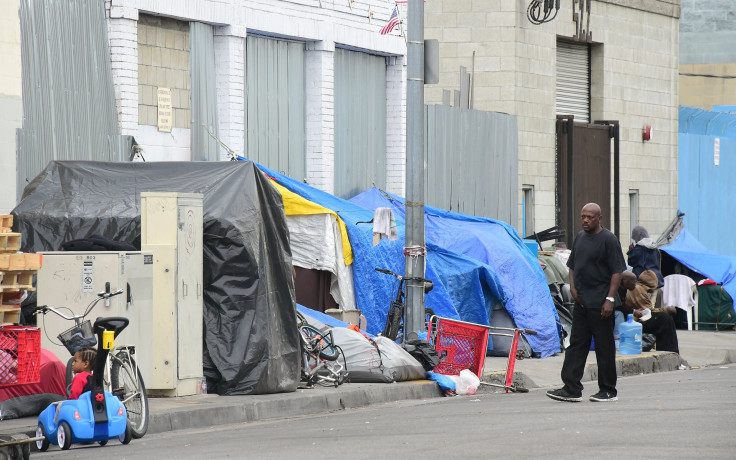Los Angeles Mayor Announces State Of Emergency To Tackle Homeless Crisis, City Council Pledges $100M

The Los Angeles City Council declared a state of emergency Tuesday to deal with the growing number of homeless people. The announcement was made by Mayor Eric Garcetti and the city council pledged $100 million to solve the growing problem, the Los Angeles Times reported.
The number of homeless people living on the city's streets has grown by 12 percent since 2003, according to the LATimes report. The West Coast city, home to Hollywood and some of the world's wealthiest people, is the first in the country to declare a state of emergency over the growing number of street dwellers, the New York Times reported.
"We all understand the urgency that this situation requires." Garcetti said, according to CNN. "I applaud the Los Angeles City Council for their action today in earmarking a necessary initial investment that helps launch my comprehensive plan to tackle homelessness.”
However, the city council has come in for criticism for a lack of clear vision in dealing with the homeless crisis, according to the LATimes. And critics of Garcetti call the mayor's move a confused plan incapable of tackling such a growing problem.
“This is all simply words,” Mark Ryavec, president of the Venice Stakeholders Association, told the LATimes. “Again, it shows an ongoing lack of leadership on behalf of the city.”
The homeless in Los Angeles were historically confined to Skid Row, an impoverished area within the city, according to a report from the Quartz, which added that people who cannot afford housing are creating tent cities, and occupying highways, parks and underpasses. Increasing rents and declining wages, coupled with a slow economic recovery, were identified as the main causes for people to choose to live on the streets in the United States, according to Quartz.
Some city lawmakers have suggested easing restrictions on churches and nonprofits to open their doors to people who require shelter, and to speed up the building of affordable houses, according to the LATimes.
“The key for us is to try to come up with money to be spent taking people off the street, and that we really haven’t invested in,” Council President Herb Wesson told the LATimes. “We’ve got to begin that conversation.”
© Copyright IBTimes 2025. All rights reserved.




















